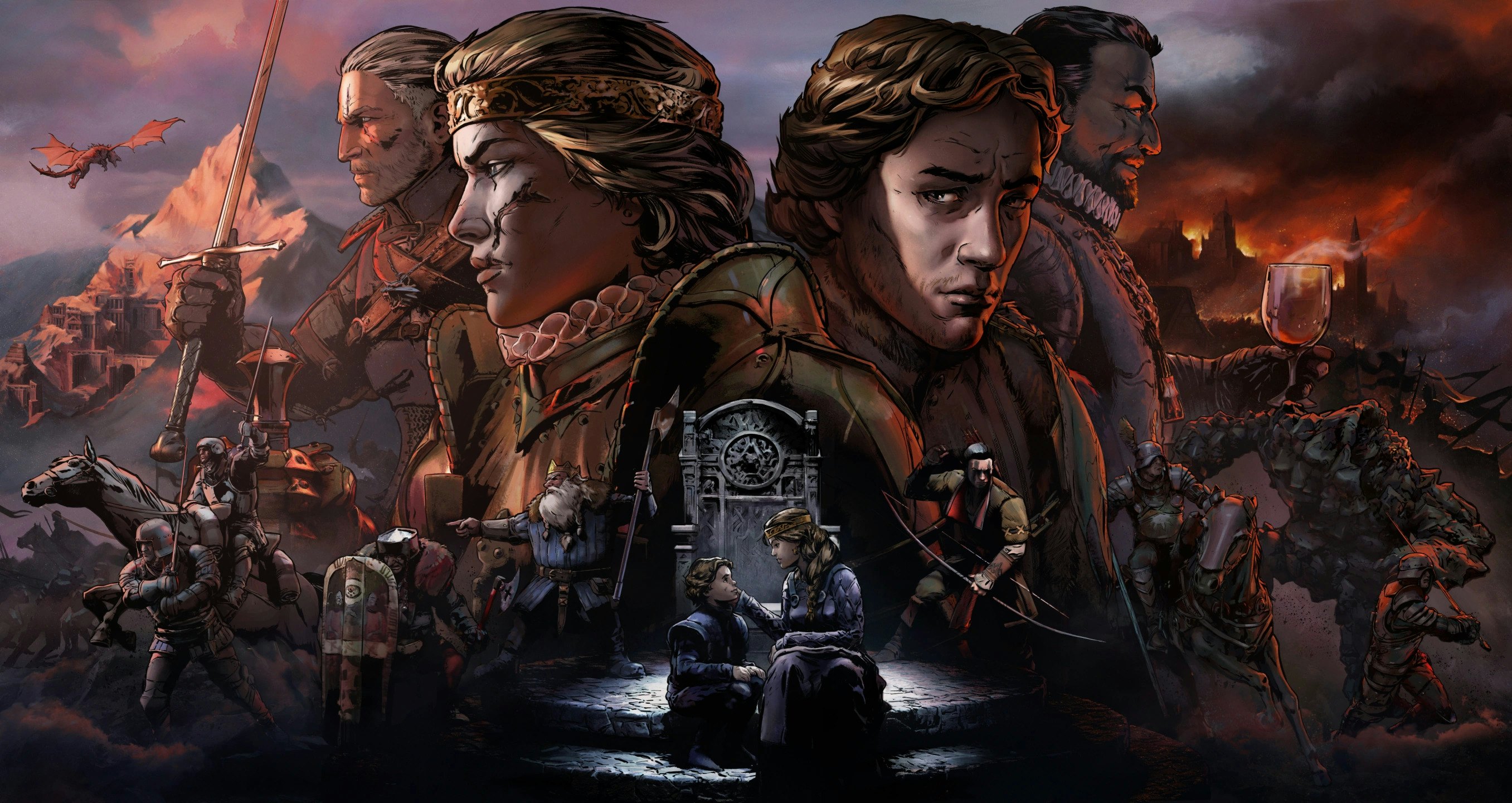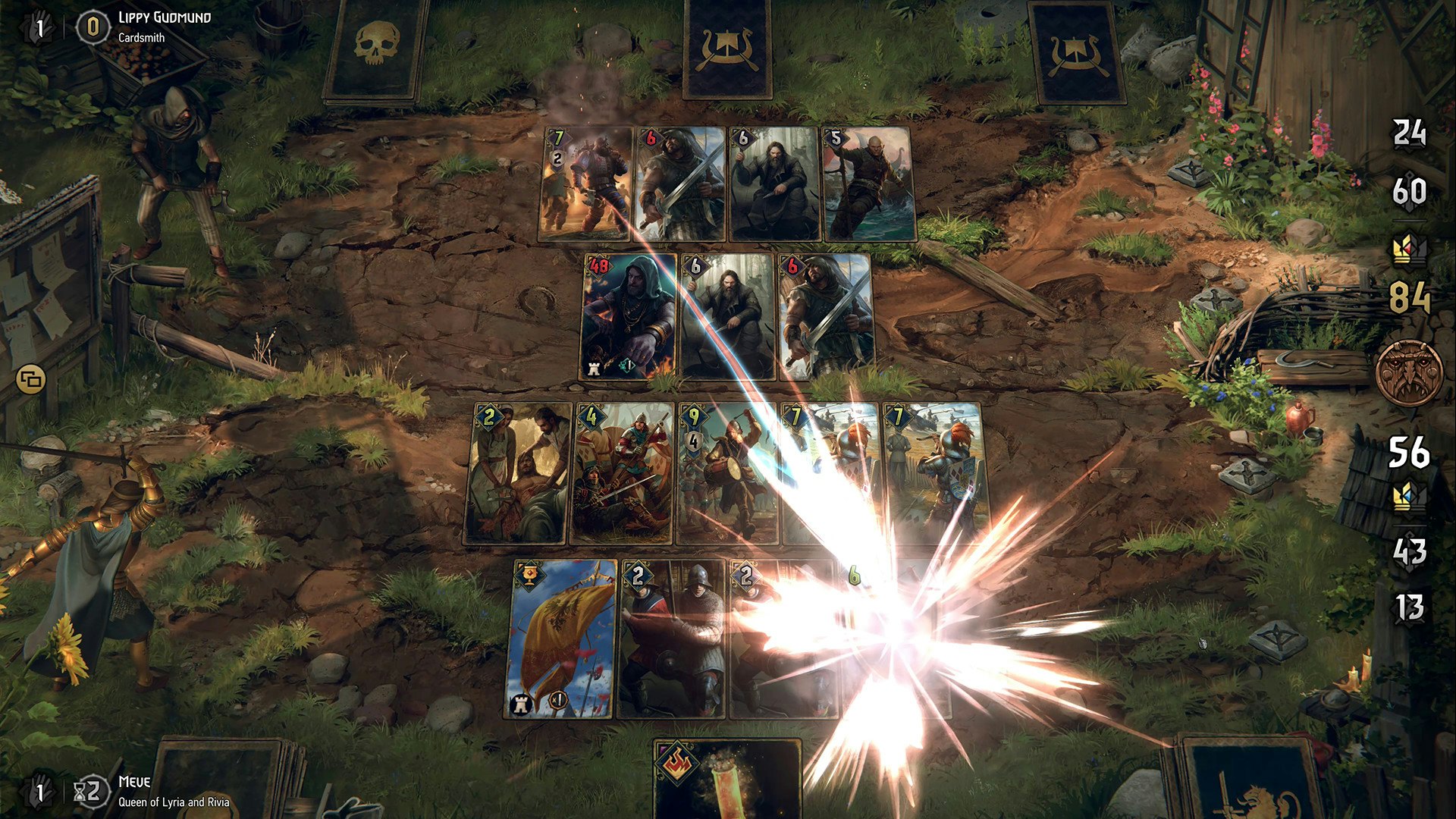
In massive, open-world RPGs full of minigames, it’s not uncommon to see a card-based minigame so good players wish they could play it without the RPG attached. But how many of them are good enough to actually become full-fledged games of their own? (I’m looking at you, Triple Triad sickos.) One game not only spun off its immensely popular card game into a separate release, but turned it into an excellent RPG on its own, and it’s free to Amazon Prime subscribers this week.
Technically, The Witcher 3 got two spinoffs for its card game, but we’re not here to talk about the standalone competitive card game Gwent. As great as that game is, the more ambitious affair is Thronebreaker: The Witcher Tales. Unlike most of The Witcher series, Thronebreaker doesn’t follow Geralt of Rivia. It takes place before the main series, focusing on Queen Meve, ruler of both Rivia and the neighboring Lyria. And rather than hunting monsters in real-time sword and magic combat, Queen Meve deals with problems using a unique card mechanic.
In some ways, Thronebreaker encounters resembles the in-universe card game Gwent closely, but it uses a different, and much more varied rule set. For one thing, Thronebreaker extends beyond the bounds of the card table. Much of the game is played on a world map from an overhead perspective, looking something like Diablo or a real-time strategy, but with gorgeous, comic book-style hand-drawn art. This is where exploration happens, as Meve walks her kingdom gathering resources to fight off a Nilfgaardian invasion and helping citizens with their problems — which, in typical Witcher fashion, tend to involve attacks by horrible roaming monsters.
When battle starts, Thronebreaker switches to a card game interface that will be much more familiar to Gwent players. Familiar, that is, until the action starts. Where Gwent is a head-to-head match with opponents fighting to earn the most points, Thronebreaker has much more interesting objectives. It’s a fully singleplayer game, so your opponents take the form of AI-controlled monsters. Sometimes, you’re more or less playing by the standard Gwent formula, trying to earn more points than the other side by placing cards. But the more interesting side of Thronebreaker is how it twists Gwent’s rules to their breaking point.

The game wastes no time in showing how it’s different from The Witcher’s normal card game, with matches that ask you to complete objectives like dodging falling rocks using your cards. Every match of Gwent has the same goal, but in Thronebreaker, card-based battles take many forms. Sometimes you need to defeat every monster on the board in the same turn, sometimes you need to take down a terrifying beast limb by limb, each part represented by a separate card with its own abilities. These aren’t just twists for the sake of keeping the game varied — the changing rules of battle and all the different ways that cards can behave also reflect the game’s narrative.
The Witcher has always been a series that thrives as much on its story as its combat, and Thronebreaker is no different. Its story centers on the newly crowned Queen Meve, who only recently came into power after her husband passed away. As she’s dealing with a hostile citizenry unsure of her ability to lead, her kingdom is overrun by bandits, monsters, and the Nilfgaard empire. Maintaining relationships with her allies and even her own advisors is key to both the story and the game’s strategy, as Meve’s proves she’s fit to rule by protecting Lyria and Rivia from all the threats it’s facing. And yes, while Geralt is far from the main character, the white-haired monster slayer does make an appearance.
Developer CD Projekt Red currently has multiple projects set in the Witcher universe underway. Details are scarce on most of them, and I’m holding out hope that one of them picks up the torch from Thronebreaker. A wonderfully experimental twist on Gwent’s gameplay with an extremely interesting new protagonist, it’s a game that ought to be experienced by fans of the series and card game fanatics alike.







